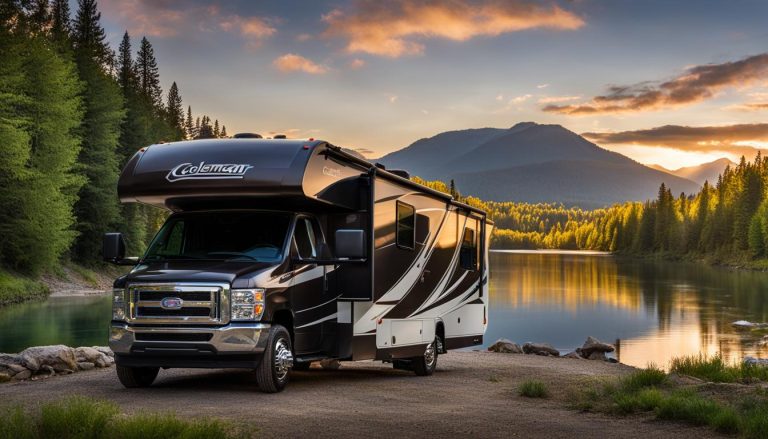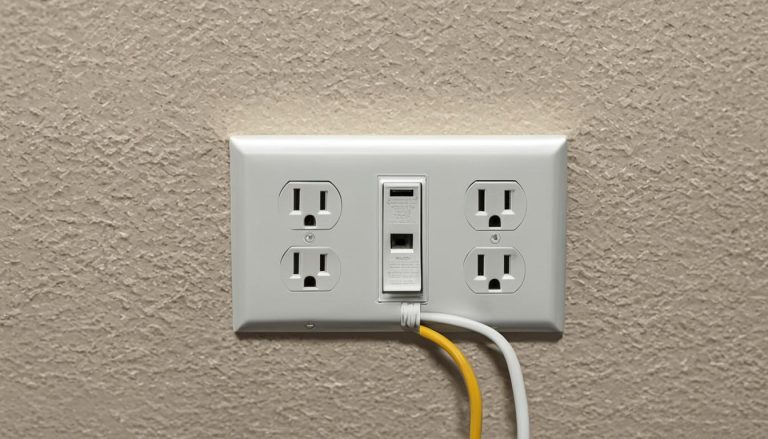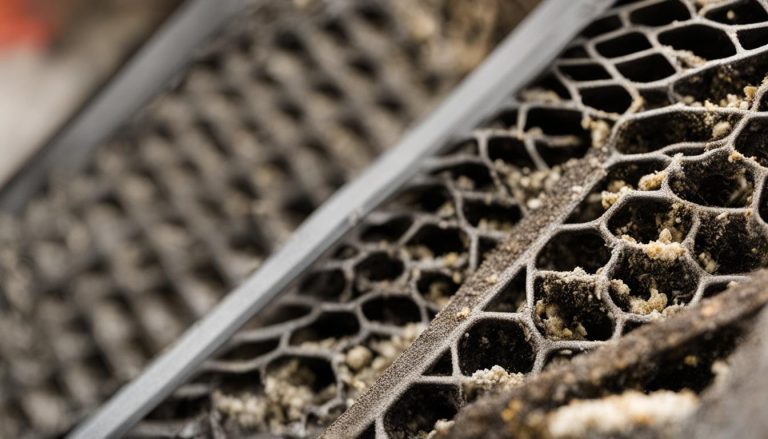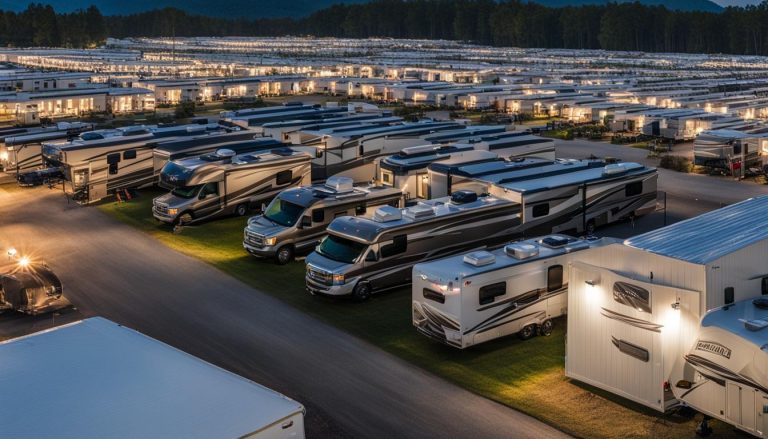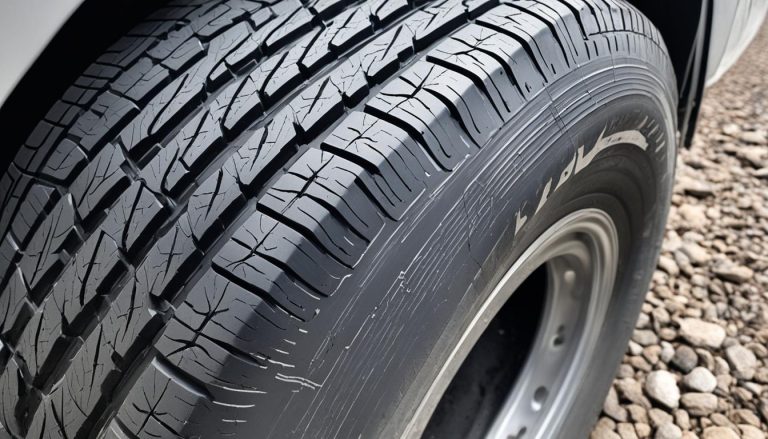Ultimate Guide to Grease RV Wheel Bearings
gorvlifestyle.com and its partners may earn a commission if you purchase a product through one of our links
Greasing the wheel bearings of your RV is an essential step in proper RV maintenance. Neglecting to grease the wheel bearings can lead to increased friction, wear and tear, and potential damage to your RV’s axles. To ensure a smooth and safe journey, follow these steps to grease your RV wheel bearings.
Key Takeaways
- Regularly greasing your RV wheel bearings is crucial for smooth and safe operation.
- Wheel bearing grease reduces friction, heat buildup, and helps prevent corrosion.
- Choosing the right type of grease for your RV wheel bearings is important.
- Greasing your RV wheel bearings involves lifting the wheels, cleaning the bearings, applying grease, and torquing the bearing nut to specifications.
- Inspecting your RV wheel bearings regularly and following manufacturer guidelines will ensure proper maintenance.
Why Wheel Bearing Grease is Important
Wheel bearing grease is an essential element for the maintenance of your RV’s wheel bearings. Without proper lubrication, these crucial components can experience increased friction, leading to wear and tear, poor performance, and even potential damage to your RV’s axles. Regular maintenance and greasing of your RV wheel bearings are vital to ensure a smooth, safe, and enjoyable journey.
When you grease your RV wheel bearings with the appropriate grease, it helps to reduce friction and heat buildup between the bearings and the surrounding components. This lubrication ensures that the bearings can rotate smoothly and freely, minimizing wear and tear. It also reduces the risk of heat-related damage, which can occur when bearings are not adequately lubricated.
In addition to reducing friction and heat, wheel bearing grease also helps prevent corrosion. RVs are often exposed to various weather conditions, including rain, snow, and road spray. Moisture can seep into the wheel bearings, leading to rust and corrosion. By applying a layer of grease, you create a protective barrier that repels moisture and other contaminants, keeping the bearings in optimal condition.
Regularly greasing your RV wheel bearings is essential for maintaining their longevity and overall performance. Neglecting this critical maintenance task can result in costly repairs and potential safety hazards. By investing a small amount of time and effort into wheel bearing maintenance for your RV, you can ensure a smoother, more reliable, and safer travel experience.
Benefits of Wheel Bearing Grease:
- Reduces friction and heat buildup
- Minimizes wear and tear on the bearings
- Prevents corrosion and rust
- Ensures smooth and safe operation of your RV
Proper wheel bearing lubrication not only extends the lifespan of your RV’s wheel bearings but also enhances the overall performance and safety of your travels.
Types of Wheel Bearing Grease
When it comes to greasing the wheel bearings of your RV, choosing the right grease is crucial for proper maintenance and longevity. There are various types of wheel bearing grease available on the market, each with its own unique properties and suitability for specific applications. In this section, we will explore the different types of grease to help you make the best choice for your RV wheel bearings.
General Multi-Purpose Grease
General multi-purpose grease is the most commonly used type for greasing RV wheel bearings. It offers good lubrication and protection against friction, making it suitable for most standard applications. It is important to follow the manufacturer’s recommendations for specific usage and maintenance intervals.
High Temperature Multi-Purpose Grease
For RVs that frequently operate under high temperatures or experience heavy loads, high temperature multi-purpose grease is recommended. This grease can withstand higher temperatures without breaking down, ensuring optimal performance and protection for your wheel bearings.
Moly-Grease
If you frequently tow heavy loads or have a larger RV, moly-grease is an excellent option. It contains molybdenum disulfide, which provides added protection against extreme pressure and heavy-duty applications. Moly-grease is ideal for use in wheel bearings subjected to high loads and harsh conditions.
Marine Grease
If your RV is often exposed to water, such as during boating trips or frequent rainy weather, marine grease is the best choice. This type of grease is designed to resist water and corrosion, providing excellent protection for your wheel bearings against moisture and saltwater damage.
| Type of Grease | Properties | Suitable Applications |
|---|---|---|
| General Multi-Purpose Grease | Good lubrication, standard protection against friction | Most standard applications |
| High Temperature Multi-Purpose Grease | Resistant to high temperatures, suitable for heavy loads | RVs operating under high temperatures or heavy loads |
| Moly-Grease | Extreme pressure protection, heavy-duty applications | RVs towing heavy loads or larger RVs |
| Marine Grease | Resistant to water and corrosion | RVs exposed to water or saltwater environments |
When choosing the best grease for your RV wheel bearings, consider factors such as temperature resistance, water resistance, and compatibility with your RV’s specific bearing requirements. Always refer to the manufacturer’s recommendations and maintenance guidelines to ensure optimal performance and prolong the lifespan of your RV’s wheel bearings.
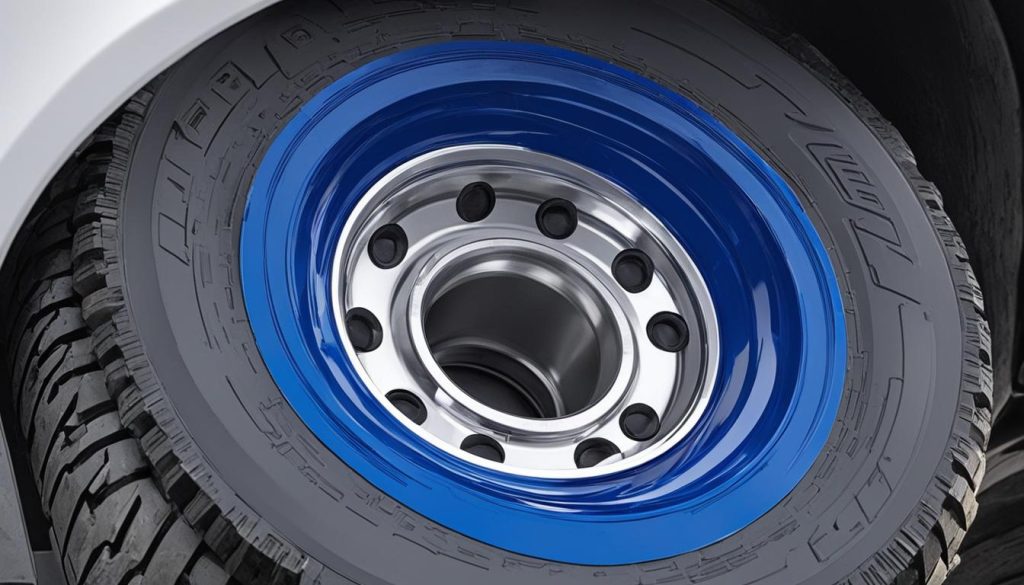
How to Grease RV Wheel Bearings
Greasing RV wheel bearings is a crucial part of regular RV maintenance to ensure optimal performance and longevity. By following these steps, you can keep your RV’s wheel bearings properly lubricated and reduce the risk of damage or failure.
Step 1: Lift your RV’s wheels off the ground
Before you start greasing your RV’s wheel bearings, it is important to lift the wheels off the ground using a jack or leveling blocks. This will eliminate tension on the bearings and allow for easier access.
Step 2: Remove the hub and clean the bearings and races
Next, remove the hub from the wheel assembly. Carefully clean the bearings and races using a suitable solvent or degreaser. Ensure all dirt, grime, and old grease are completely removed. Take note of any signs of damage or wear on the bearings or races, as they may need to be replaced.
Step 3: Apply wheel bearing grease to each bearing
Apply a generous amount of wheel bearing grease to each bearing, making sure to cover all surfaces. Use a grease gun or a bearing packer tool for easy and efficient application. Ensure that the grease is evenly distributed throughout the bearing.
Step 4: Reinstall the bearings into the hub
Once the bearings are properly greased, carefully reinstall them into the hub. Make sure they are seated correctly and aligned with the races. If necessary, consult your RV’s manual for specific instructions on bearing placement.
Step 5: Torque the bearing nut and secure it
Using a torque wrench, tighten the bearing nut to the manufacturer’s recommended specifications. This will ensure proper bearing adjustment and prevent over-tightening or under-tightening. Once torqued, secure the bearing nut with a cotter key or an EZ lube lock clip to prevent any loosening.
Step 6: Regular maintenance and greasing
It is recommended to grease your RV’s wheel bearings at least once a year or as per the manufacturer’s guidelines. Regularly inspect the bearings for any signs of wear, such as excessive play or noise. Always follow the recommended maintenance schedule and greasing intervals to keep your wheel bearings in optimal condition.
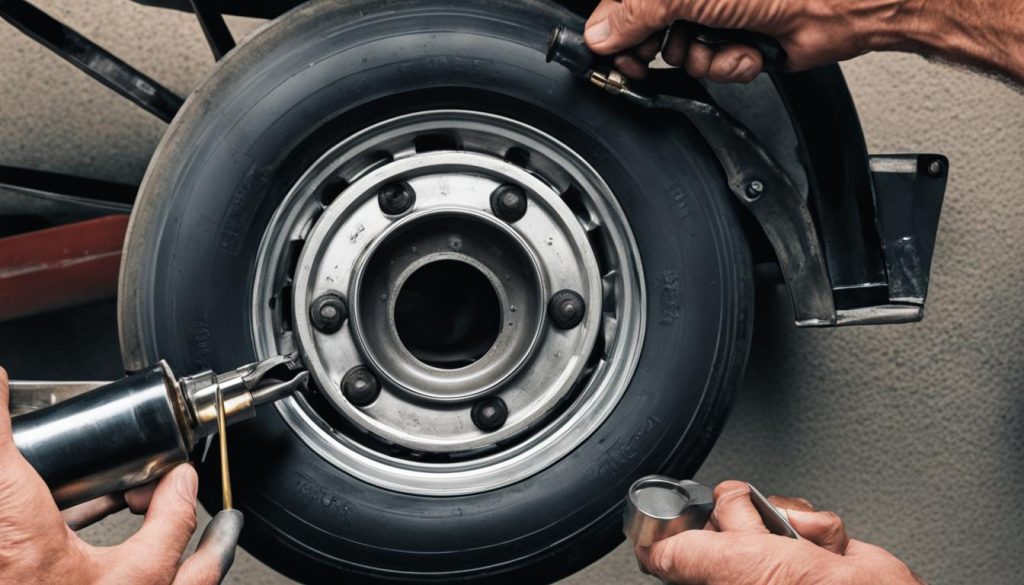
Tips for Proper Wheel Bearing Greasing
- Regularly inspect your RV’s wheel bearings for signs of wear or damage.
- If you notice any abnormal signs, such as excessive play or unusual noise, it may be an indication that your bearings need greasing or replacement.
- Follow the manufacturer’s guidelines for greasing intervals and use the recommended type of grease for your specific RV.
- Keep your RV’s wheels properly aligned and balanced to minimize stress on the wheel bearings.
- Ensure that all parts are properly tightened and secured after greasing the wheel bearings.
Tips for Proper Wheel Bearing Greasing
Proper maintenance and greasing of your RV wheel bearings are crucial for optimal performance and safety on the road. To ensure that your wheel bearings are effectively greased, here are a few important tips to keep in mind:
1. Regular Inspection: Regularly inspect your RV’s wheel bearings for signs of wear, such as excessive play or noise. If you notice any abnormal signs during your visual inspection or while driving, it may indicate that your bearings need greasing or replacing.
2. Follow Manufacturer’s Guidelines: Always follow the manufacturer’s guidelines for greasing intervals. They specify the recommended timeframes for greasing the wheel bearings. By adhering to these guidelines, you can ensure that your bearings are adequately lubricated.
3. Use Recommended Grease: It is important to use the recommended type of grease for your specific RV. The manufacturer will provide specifications for the type of grease that is compatible with your wheel bearings. Using the right grease will enhance the effectiveness of the lubrication and protect your bearings from excessive wear and tear.
By implementing these tips and staying vigilant about the condition of your wheel bearings, you can prolong their lifespan and ensure a smoother and safer journey for your RV.
FAQ
Why is greasing the wheel bearings of an RV important?
Greasing the wheel bearings of your RV is important because it reduces friction, wear and tear, and potential damage to your RV’s axles. It ensures a smooth and safe journey.
What role does wheel bearing grease play in maintaining RV wheel bearings?
Wheel bearing grease provides lubrication, reducing friction and heat buildup between the bearings and surrounding components. It also prevents corrosion and protects the bearings from moisture and contaminants.
What types of grease are available for RV wheel bearings?
The most common types of grease for RV wheel bearings include general multi-purpose grease, high temperature multi-purpose grease, moly-grease, and marine grease. The best grease for your RV depends on factors such as temperature resistance, water resistance, and compatibility with your RV’s specific bearing requirements.
What are the steps to grease RV wheel bearings?
The steps to grease RV wheel bearings include lifting the wheels off the ground, removing the hub, cleaning the bearings and races, applying wheel bearing grease, reinstalling the bearings, and torquing the bearing nut to the manufacturer’s specifications.
How often should RV wheel bearings be greased?
It is recommended to grease RV wheel bearings at least once a year or as per the manufacturer’s guidelines. Regular inspection for signs of wear or abnormality is also recommended.
How can I tell if my RV wheel bearings need greasing?
You can tell if your RV wheel bearings need greasing by inspecting them for signs of wear, such as excessive play or noise. If you notice any abnormal signs, it may be a sign that your bearings need to be greased or replaced.

